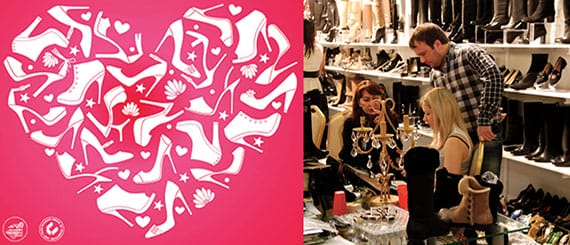“Manufacturing abroad requires transparency over the origin of your product. Perhaps we’d better specify that more closely and let customers know where our footwear comes from”. Federica Felicini, from Giorgio Piergentili shoe factory, speaks out at Obuv Moscow while wrapping up the clash between companies: on one side, those who entirely carry out their manufacturing in Italy, on the other side those who take abroad a few production stages in order to reduce sale prices. At the end of the fair Russian customers come across two articles, both of them made in Italy, at different prices though. In the past Annarita Pilotti, president of Assocalzaturifici (the association of footwear manufacturers), had made her point on the issue as well. “Price is very important, but reliability, along with the company’s background, as well as the service they provide and product quality are rewarding in the end”- wraps up Felicini while confirming that attendance of visitors has been slowing down at the fair, which is closing its stands today. “The current business situation is still far difficult, and our turnover is absolutely negative, unfortunately”- remarks Enrico Barbato from Accademia. Likewise, Marino Fabiani looks pessimistic about the overall situation, while commenting his disappointment after this edition of the fair: “One of the reasons why clients are puzzled and do not know what to do is that customs rules keep changing, so they fear that customs officers will seize their goods (which they have already paid for)”. Although visitors have been decreasing in number, Giammarco Marzialetti, from Marina C leather goods supplier, is satisfied: “Fortunately, the company’s business trend is going up, and we are therefore happy about Obuv current edition. We closed some deals, our fidelity clients showed up, though I personally believe that visitors have been considerably decreasing. Russians’ spending power has dropped, owing to rising taxation; therefore, they can no longer afford to buy as they used to do in the past. Hence, they pay much more attention to (cheaper) prices”.
At Obuv Moscow visitors slow down, while focusing on prices, made in Italy and transparency










